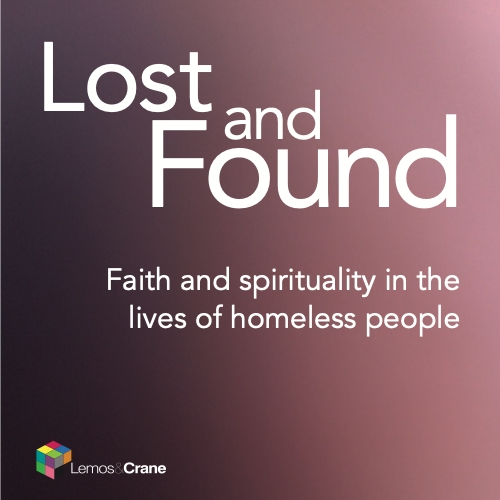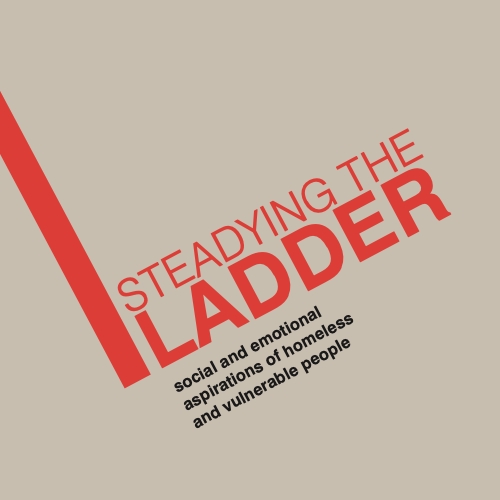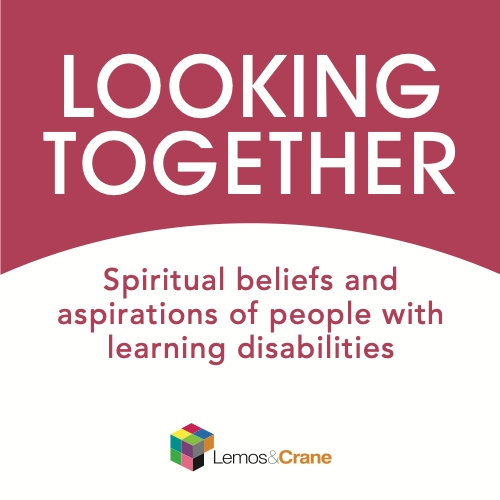Lemos&Crane was founded in 1994 by Gerard Lemos CMG CBE, social researcher, and Paul Crane, publisher. Gerard’s publications include The End of the Chinese Dream: Why Chinese people fear the future. He has been chair of English Heritage, HMPPS and the British Council and held many appointments in government, financial services, universities and the voluntary sector. Paul was the solicitor in the landmark case at the European Court of Human Rights that legalised homosexuality in Northern Ireland. He is also the author of Gays and the Law. Some of Lemos&Crane's most important work is below.
To request a free digital copy of publications shown below

"Particularly fascinating... focuses on some big questions in a very approachable way. I hope the book was on the holiday reading of key policy makers and politicians. It made me think...and hope."
Nicola Padfield, University of Cambridge, Recorder of the Crown Court.

"An extremely informative and deeply insightful piece of work with the potential to have a widespread positive impact across the whole of the prison system.... by any measure it is a remarkable achievement."
Erwin James, Inside Time and The Guardian

"A selection of fascinating essays which display the importance of kindness, hope and compassion in the criminal justice system. An honest look into a challenging world which demonstrates how HMPPS is able to transform lives."
Jo Farrar, Chief Executive, Her Majesty’s Prison and Probation Service

"This brilliant book poses a simple question that haunts our society: what to do with people who commit crime? The answers it suggests are engaging, smart, varied, come from several different directions and most definitely worth reading."
Ian Birrell, contributing editor Mail on Sunday.

"An important contribution to a conversation society must urgently address. The manys voices and case studies in this collection are an important contribution to this discussion and – I hope – a step on our journey towards a less violent society"
Vicky Foxcroft, MP for Lewisham and Deptford

"These are the organisations that will still be realising the Monument Trust’s objectives for years to come, in the hope that their Fellowship will achieve a momentum and lasting influence greater than the sum of the parts."
Mark Woodruff, The Monument Trust

"Yeah man, I loved it. Good vibes it brought everyone together. And they took us out of prison for this moment. I would like to thank everyone for taking part and the staff for organising it and our families for coming."
HMP Whitemoor resident

"The atmosphere in the hall was pure, living and breathing Rehabilitative Culture. Everywhere I have been today prisoners (even some of our more difficult to engage men) have been asking me when we are going to do it again, and whether or not we can start our own orchestra, band, rap crew and singing groups. It’s all had an utterly brilliant impact. It is one of those rare awesome days I will always remember."
Will Styles, Governor, HMP Whitemoor

"Belief and Belonging addresses a difficult subject with great understanding. This Research Report outlines the work that the Catholic church does with those who are often outside the margins of society. The work of prison chaplains reminds us of the Church’s mission of accompaniment and invites us to share God’s genuine mercy. Just as Jesus reached out to sinners, we too, following his example must also reach out and show forgiveness. As well as addressing the spiritual needs of prisoners, Belief and Belonging recognises the valuable practical role that prison chaplains perform."
H.E. Cardinal Vincent Nichols

"“Yeah man, I loved it. Good vibes it brought everyone together. And they took us out of prison for this moment. I would like to thank everyone for taking part and the staff for organising it and our families for coming.”"
HMP Whitemoor resident

"The atmosphere in the hall was pure, living and breathing Rehabilitative Culture. Everywhere I have been today prisoners (even some of our more difficult to engage men) have been asking me when we are going to do it again, and whether or not we can start our own orchestra, band, rap crew and singing groups. It’s all had an utterly brilliant impact. It is one of those rare awesome days I will always remember."
Will Styles, Governor, HMP Whitemoor

"Happy memories are wellsprings for optimistic aspirations for the future and optimism, along with determination, are key components in successful resettlement; perhaps the most important components"

"Trends and Friends has had a profound impact on the work of Thames Reach, offering strong evidence that homeless service uses make regular use of digital technology, particularly to keep in touch with family and friends, but are held back by restrictions on access to computers, laptops and tablets and forced to pay over the odds in order to stay digitally connected. The research will act as a reference point and spur, galvanising us to find ways to make it easier for people to engage in the digital revolution."
Jeremy Swain, Chief Executive, Thames Reach

"The stereotype of social housing tenants is that they are like other people on low incomes in unmanageable debt, have no qualms about borrowing or benefits, manage their money poorly or don’t appreciate the value of money and are not keen to work. This survey challenges this. Most tenants seek to manage their money well and certainly aspire to being financially responsible"

"Lost and Found brings to our attention ground breaking research into the faith, spirituality and profound insights of homeless people."
HE Cardinal Vincent Nichols

"Ex-homeless people are not people with feckless and unstable attitudes and lifestyles, spendthrift ways and prone to bad behaviour in bad company. Money was not seen as a problem but instead as an opportunity which signified the hope of greater security, more respect for yourself and from others, better relationships, the possibility of achieving cherished aspirations and, above all, a sense of freedom."

"Steadying the Ladder provides an invaluable resource of understanding to inform the work of anyone supporting homeless people in their struggle to live independent lives."
Community Care magazine

"“Dreams Deferred was the inspiration for so much of the work that we do within the drop-in centre and behind the scenes. Our ‘Moving On’ programme is based on the Dreams Deferred toolkit. Re-reading the Research Report recently blew me away – it made me remember why we put so much time and energy into our model of support.”"
Lisa Lewis, Chief Executive, Doorway

"I am delighted that Caritas Westminster has been able to support this research by Lemos&Crane. I am grateful for the diligence and sensitivity with which the research team approached the subject. The findings clearly demonstrate that such concepts and their concrete expression are valued by people with learning disabilities."
John Coleby, Director, Caritas Westminster

"Loneliness and Cruelty Research Report provides a vivid account of the difficult and harassed lives that many people with learning disabilities live in the community. The Crown Prosecution Service remains committed to prosecuting cases of disability hate crime as effectively as possible."
Sir Keir Starmer QC, Former Director of Public Prosecutions, Crown Prosecution Service